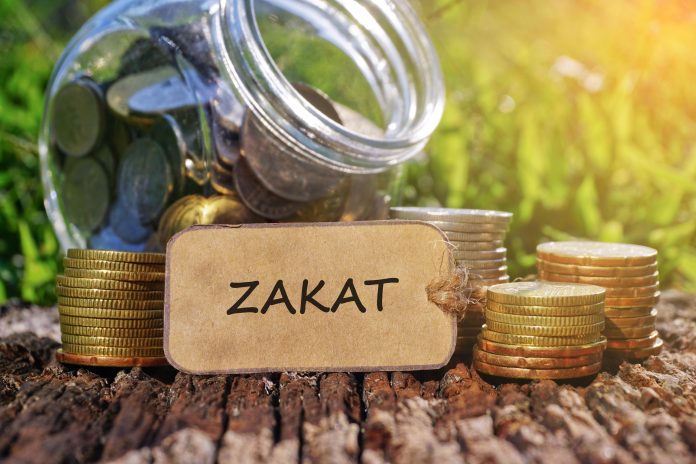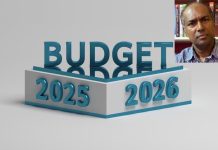Discussing the need and the steps for the improvement of the living conditions of the poor of the Muslim community, my interlocutor immediately suggested the collection of Zakat and the creation of a zakat fund. There is already a proliferation of similar organisations whose list gets bigger each year during Ramadan. I once read a poster in front of a Masjid that said” Give us your zakat to be sure it is in safer hands”. Whatever that means.
There are a lot of stories about zakat and its benefits. A popular one is that if every Muslim contributes according to his economic status, there will not be a single poor in society. Anyone making such a statement would get a unanimous nod. How one comes to that conclusion is a mystery.
How does one define poverty? I have heard on a radio station of someone considered poor who did not have enough to buy a birthday present or bake a cake. Another one lamented that they had to forego their favourite brand of whisky; in England someone is considered poor if he cannot buy a round of drinks in his favourite pub. Has it occurred to those in charge of the distribution of zakat that there is no universal definition of poverty and that concept varies from country to country and culture to culture? In some societies religious men go round with a begging bowl. In some cultures someone would prefer to go hungry rather than ask for charity. In other societies some people try to cheat the system in order to qualify for social security handouts.
Who knows how to combat poverty? The simplest way is to give handouts and create dependency. You will recall that all governments, since that the welfare state was created, have been fighting poverty with the cruel paradox that poverty has a longer life than governments. And if poverty is gone, one wonders what the justification will be for having a government at all!
Moreover it is possible that, with one supplicant knocking on several doors, the distribution is uneven. There is no doubt that in their zeal some donors compete with national institutions in their quest for jannat through charity. How would you describe it if a Zakat fund is financing a student on a course that is fee-free at the University of Mauritius? Or paying for a surgery which can be done free in our hospitals? And how about supplementing the monthly income of a couple who is already receiving Rs36,000 of monthly pensions?
Adi Setia, in an article on Islamic Economics, quoted a Hadith which I would like to sum up: A Sahabi came to ask for a handout from Rsaw. The prophet of Allah swt asked him to bring whatever he had in his house. The Sahabi returned with a drinking bowl and a saddle blanket which Rsaw sold to the highest bidder, handed the proceeds to his companion and asked him to buy food for his family with half the proceeds and an axe with the other half. He advised him to chop fire wood and sell it. The Sahabi returned after two weeks with ten dirhams. The Messenger of Allāh (may Allāh bless him and give him peace), said to him, “This is better for you than begging thereby scarring your face on the Day of Resurrection”.
In the words of Setia, this story is food for thought with respect to Islam’s general attitude towards working for a living (kasb). The poor are not to resort to begging (suʾāl) so long as they are physically fit and able to work for their livelihood by pursuing a craft, trading, farming, hunting, foraging, working for a wage, and so on. Instead of giving handouts to the poor, one is to first ascertain their capacity to work and advise them accordingly, for they may not be really poor by general standards but only conditioned into thinking they are poor. Thus we find in this hadith the Prophet, (Allah bless him and give him peace), giving what we may now call “business advice” to a young man finding his way in the world.
The general idea here is trade not aid, industry not charity. My personal experience is that the poor are generally able to help themselves out of poverty.
I for one believe that there is a pressing need to rationalise the collection and distribution of Zakat through the help of professionals qualified in Social Administration. That will ONLY make for better outcomes.
By Dawood Auleear




![[Yoga] A shared legacy, a shared future](https://sundaytimesmauritius.com/wp-content/uploads/2025/06/Yoga-Article-HC-218x150.jpg)
![[Khutbah – La Réflexion du Vendredi] Tawakkul, la confiance absolue en Allah (swt)](https://sundaytimesmauritius.com/wp-content/uploads/2025/06/Tawakkul-218x150.jpg)

![[Poetry corner] In memory of my friend Swabir Goodur](https://sundaytimesmauritius.com/wp-content/uploads/2025/04/CASAM-218x150.jpg)
![[Beryl Rose] Hassam Choychoo s’est éteint à 75 ans](https://sundaytimesmauritius.com/wp-content/uploads/2025/06/503203338_602562678981625_1382864677359506026_n-150x150.jpg)

![[Lutte contre l’insécurité] Le PM annonce une refonte en profondeur de la police et une tolérance zéro face au crime](https://sundaytimesmauritius.com/wp-content/uploads/2025/06/force-policiere-e1750504149483-150x150.jpg)

![[Beryl Rose] Hassam Choychoo s’est éteint à 75 ans](https://sundaytimesmauritius.com/wp-content/uploads/2025/06/503203338_602562678981625_1382864677359506026_n-100x70.jpg)

![[Lutte contre l’insécurité] Le PM annonce une refonte en profondeur de la police et une tolérance zéro face au crime](https://sundaytimesmauritius.com/wp-content/uploads/2025/06/force-policiere-e1750504149483-100x70.jpg)